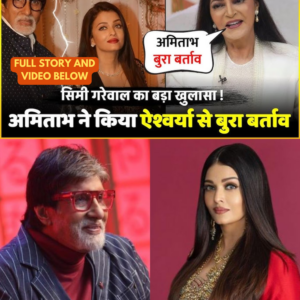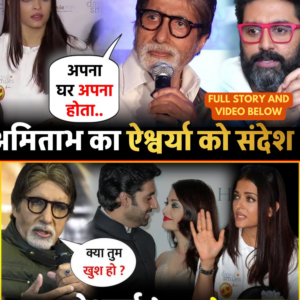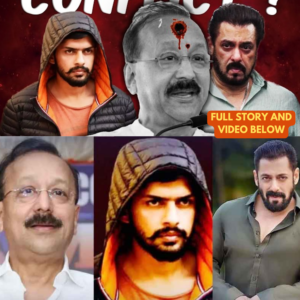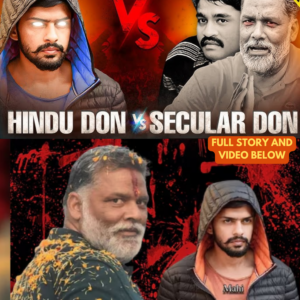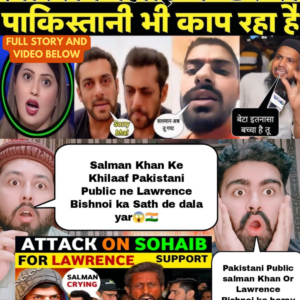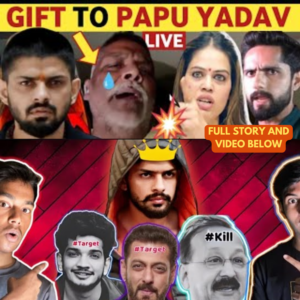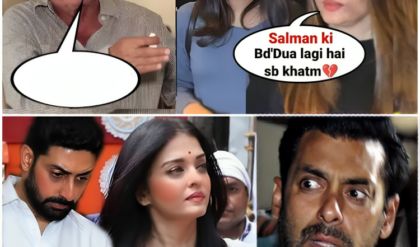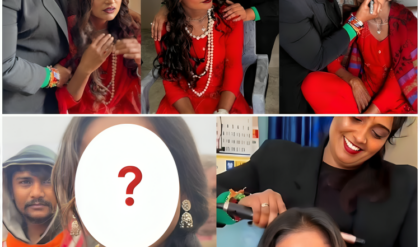Why did the strong lawyer say this to Lawrence on Salman’s apology, uproar in Bollywood
The recent demands from the Lawrence gang for Bollywood star Salman Khan to apologize have sparked significant discussion across media platforms. This controversy primarily stems from an incident involving Khan’s illegal hunting of a black deer, an animal revered by the Bishnoi community. The community insists that Khan’s actions have deeply offended their religious beliefs, calling for an acknowledgment of their sentiments.
From a legal standpoint, the situation is complex. The courts have already weighed in, with Salman Khan receiving a five-year sentence for his actions under the Animal Protection Act. While the emotional appeals from the Bishnoi community resonate with many, the judiciary has acted according to established laws, suggesting that the legal framework is already functioning as it should.
In this context, the discussion turns to the role of the judiciary. Advocates argue that the Supreme Court and High Courts in India serve as critical checks on societal pressures. The legal process must be respected, and any judgments should be awaited without external influence. This highlights the principle that law takes precedence over public sentiment, ensuring that justice is served fairly.
However, the situation raises alarming questions about law and order in the country. Reports indicate that gang members, including Lawrence Bishnoi, continue to make threats from behind bars. This scenario suggests a significant breakdown in the enforcement of law and order, as the judicial system seems unable to fully contain criminal elements, even within prison walls.
Moreover, the ability of incarcerated individuals to orchestrate threats raises concerns about the effectiveness of the penal system. Observers are questioning whether it is possible for such actions to occur without collusion or negligence on the part of prison authorities. The implications of these threats extend beyond the immediate situation involving Salman Khan, affecting public trust in the justice system.
There are also speculations regarding the motives behind the threats attributed to Lawrence Bishnoi. Some analysts suggest that he may be used as a figurehead for broader criminal activities orchestrated by other groups. This manipulation could serve to deflect attention from the true perpetrators, creating a complex web of accountability and responsibility.
Additionally, the broader societal context cannot be overlooked. The threat posed by organized crime to individuals, including celebrities, reflects deeper issues of security and governance in the country. If individuals can be targeted even with legal protections in place, the implications for civil society are profound.
As the situation unfolds, it is crucial for the government and law enforcement agencies to address these challenges head-on. The public’s faith in the legal system is at stake, and immediate actions are required to restore confidence. It is vital to ensure that the rights of individuals are protected while also maintaining order and safety in society.
In conclusion, the demands for Salman Khan’s apology and the surrounding circumstances provide a critical lens through which to view the intersection of law, society, and celebrity culture in India. The resolution of this controversy will not only impact those directly involved but will also set precedents for how similar cases are handled in the future. As discussions continue, all eyes will be on the legal proceedings and the responses from both the community and the government.
News
Amitabh Bachchan behaved badly with his daughter-in-law Aishwarya Rai | Amitabh IGNORE Aishwarya Rai
In recent weeks, a wave of speculation has emerged suggesting that all may not be well between former Miss World Aishwarya Rai and the iconic Bachchan family. This speculation has captured the attention of fans and the media, as rumors…
Amitabh gave a message to daughter-in-law Aishwarya Rai, said “No matter how your house is, it is yours”
Amitabh Bachchan, the iconic figure of Indian cinema, has a longstanding tradition of engaging with his audience through social media. He often shares reflections on his life, career, and personal philosophies. Recently, a particular post of his has stirred significant…
Salman Khan vs Lawrence Bishnoi | Why it is Happening? |
Salman Khan vs Lawrence Bishnoi | Why it is Happening? | The tension between Bollywood superstar Salman Khan and gangster Lawrence Bishnoi has become a hot topic in recent news. This clash is not just a simple feud; it embodies…
Lawrence Bishnoi Vs Pappu Yadav | Bishnoi Targets Anti-India Mafia?
In the ever-evolving landscape of India’s criminal underworld, a new chapter is unfolding, marked by the dramatic confrontation between notorious gangster Lawrence Bishnoi and the infamous Bihar don, Pappu Yadav. This rivalry has escalated recently, with Bishnoi’s gang issuing a…
LAWRENCE BISHNOI VS SALMAN KHAN, PAKISTANI PUBLIC REACTION AFTER NADEEM KHAN VIRAL VIDEO, REAL TV
The recent controversy involving Bollywood superstar Salman Khan and Lawrence Bishnoi has sparked intense discussions across communities, especially concerning allegations of animal cruelty. The speaker, representing a particular community, emphasizes that if there is evidence that Khan has harmed a…
LAWRENCE BISHNOI’S DIWALI GIFT TO PAPU YADAV LIVE, AFTER NADEEM KHAN & SALMAN KHAN, LATEST NEWS
In a recent live discussion, significant attention was drawn to the ongoing tensions surrounding Pappu Yadav and Lawrence Bishnoi, especially in light of recent developments involving prominent figures like Nadeem Khan and Salman Khan. The speaker began by addressing the…
End of content
No more pages to load
